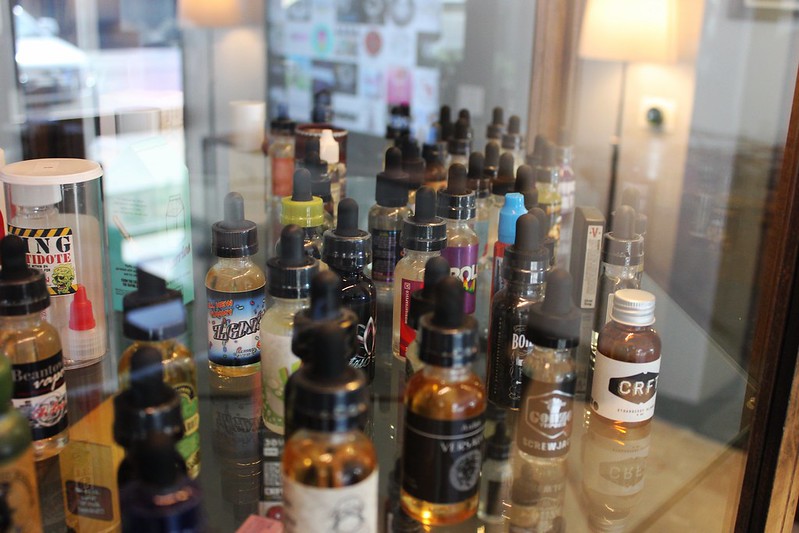Virginia has confirmed an effective ban on flavored vapes, though with a one-year delay, while similar legislation in Iowa awaits the governor’s signature or veto.
These are just the latest examples of so-called PMTA registry bills, which are spreading around the United States in the name of protecting consumers from unregulated products. Opponents say they harmfully limit options for people seeking to quit cigarettes.
PMTA registry bills restrict legal sales to listed products that have either been authorized by the Food and Drug Administration, under its premarket tobacco product applications (PMTA) pathway, or are undergoing that process.
Tobacco harm reduction advocates have long condemned the PMTA process as excessively onerous and opaque. They point out that it’s easier to bring new cigarettes to market than it is to gain authorization for vastly safer vapes that can replace them. The FDA’s enforcement powers are limited and most vapes currently sold are unauthorized, in a legal gray area.
To date, the FDA has not authorized a single non-tobacco flavored vaping product, rejecting millions of applications in what the agency’s critics say amounts to a blanket anti-flavor policy.
Tobacco companies are supporting PMTA registry bills, in what critics say is a bid to dominate the market at the expense of people who smoke.
The manufacturers of the few vaping products that have been authorized are owned by tobacco companies. And tobacco companies are supporting PMTA registry bills, in what their critics say is a bid to dominate the market at the expense of people who smoke.
Alabama, Louisiana and Oklahoma already have PMTA registry bills in force, according to a report by Ecigator, while laws in Kentucky, Utah and Wisconsin are set to take effect in 2025 (though a lawsuit is targeting the Kentucky legislation). “Legislators in approximately 20 other states are currently considering similar bills,” the report states.
In Iowa, Governor Kim Reynolds (R) has not yet indicated whether she will sign a bill passed by the legislature in April. The Consumer Advocates for Smoke-Free Alternatives Association (CASAA) has dubbed it “A Big Tobacco Protection Act.”
In Virginia, where lawmakers also recently passed a registry bill, Governor Glenn Youngkin (R) approved it, but added an amendment to delay enforcement until July 1, 2025, which was in turn approved by the legislature in April.
Supporters of the legislation in Virginia, as elsewhere, say it will protect consumers by getting rid of unregulated vaping products, and curb youth vaping—which is often blamed on flavored vapes. They say they’ve received backing from local business owners who want to be clear that what they’re selling is legal.
But opponents argue that small businesses, as well as people who wish to quit smoking, will suffer if the bills are implemented.
“We appreciate that Gov. Youngkin has asked the legislature to delay implementation by one year, but an extra year to prepare to close their doors is not much solace to small business owners,” Gregory Conley, director of legislative and external affairs for the American Vapor Manufacturers trade organization, representing smaller and independent businesses, told Filter.
“It is the vape shops and their customers that have the most to lose.”
John Dunham and Associates, an economic research firm, predicted job losses for over 1,800 Virginians and economic losses of over $250 million for the commonwealth, if flavored vapes are removed from shelves. Small businesses will also face fines of $1,000 per day for each unsanctioned product they sell.
Skip Murray, a tobacco harm reduction advocate who has written for Filter, formerly owned a vape shop in Minnesota, where she mostly sold e-liquids. She told Filter that the expensive and arduous process of filing PMTA applications, which was not realistic for her business, was one reason her shop had to shut down in 2021.”Plus, the flood of misinformation convinced people that vaping wasn’t a safer option than smoking.”
“It is the vape shops and their customers that have the most to lose” from PMTA registry bills, Murray said.
Specialized vape shop staff and owners, she continued, provide vital support and advice to people who wish to switch from cigarettes, who may need to try a number of different vaping products before they find what works for them. “No 16-year-old cashier at a gas station is going to care if someone quits smoking or not, and even if they did, they wouldn’t have the lived experience of vape shop employees, many of whom used vapor products to stop smoking themselves.”
Much research has indicated the importance of flavors for people switching from cigarettes to vapes. Many people who quit smoking say they were only able to do so after finding the particular vape flavor that was right for…
This article was originally published by a filtermag.org . Read the Original article here. .

